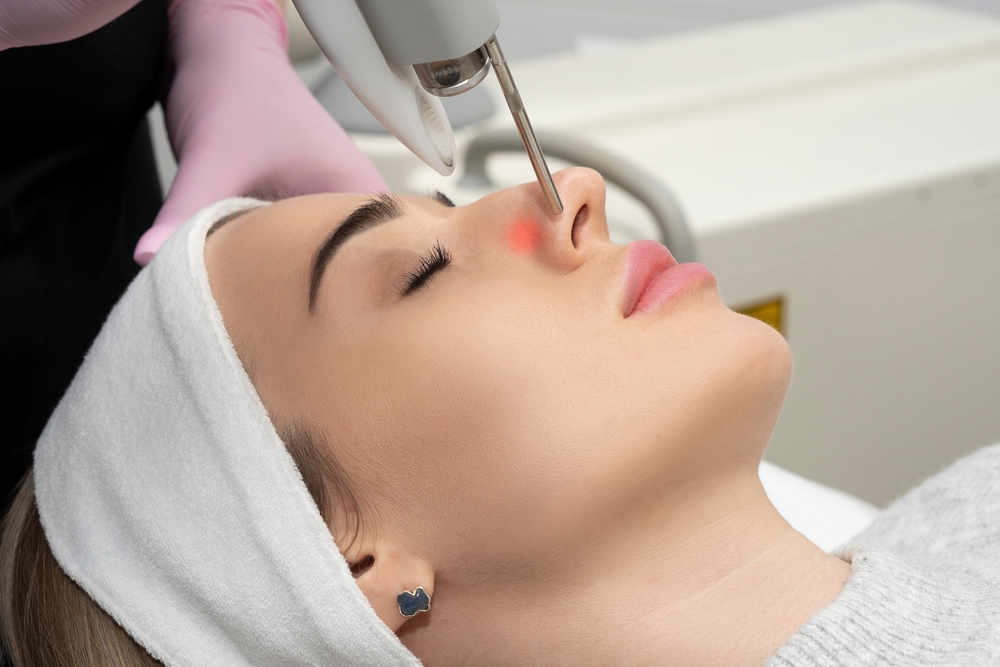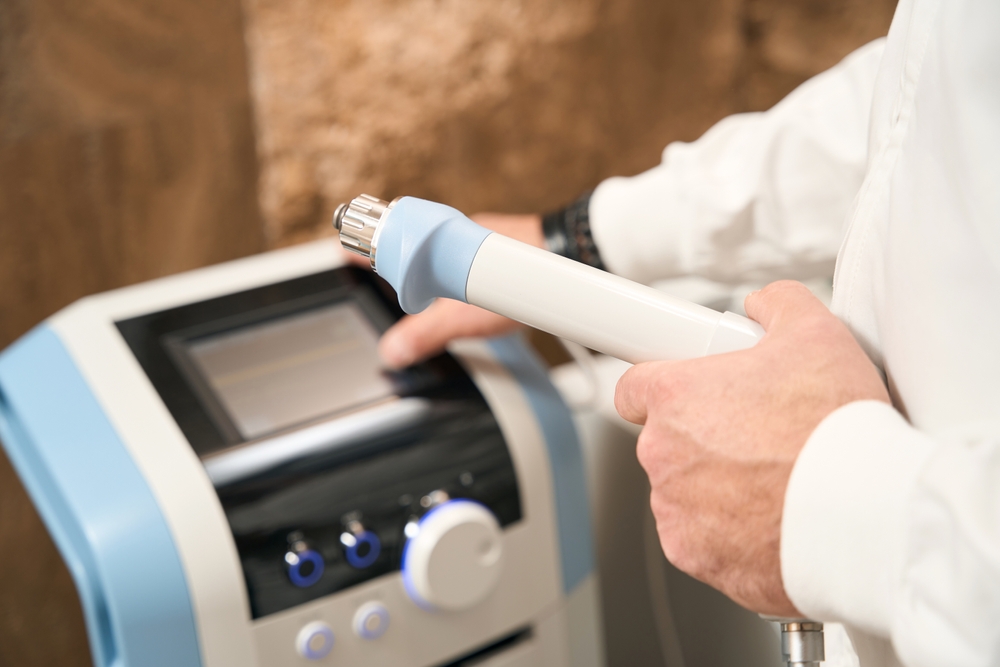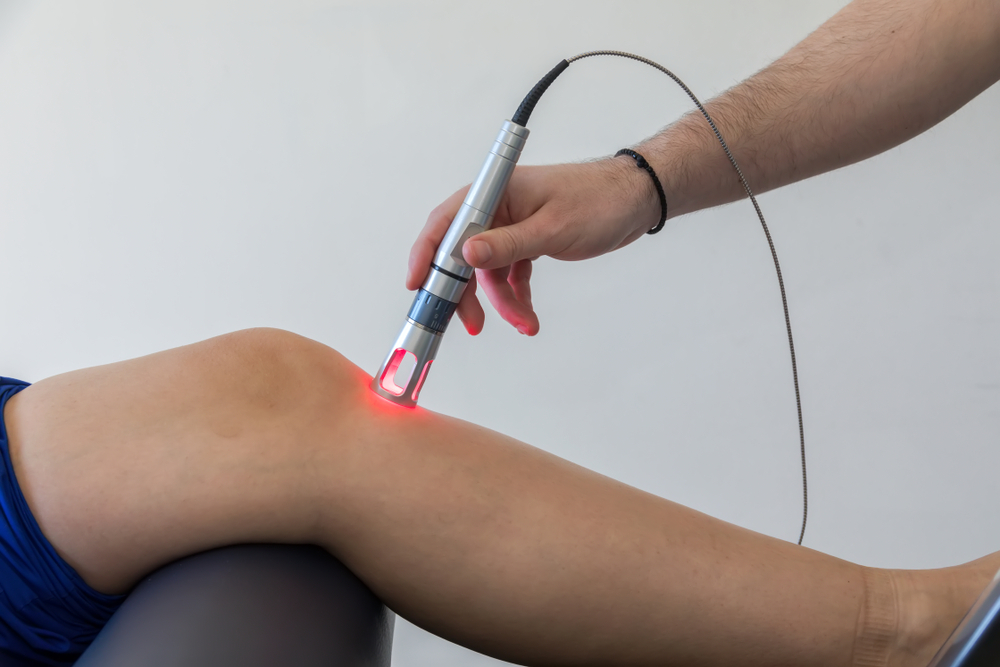Laser therapy has emerged as a promising option for addressing a wide range of health conditions in the quest for effective and non-invasive medical treatments.
In this article, we will delve into the world of laser therapy, shedding light on what it can treat and helping you determine whether it’s the right solution for your specific health concerns.
How Laser Therapy Works
Laser therapy, also known as low-level laser therapy (LLLT), employs the power of concentrated light to stimulate healing in injured or damaged tissues.
The laser devices used emit specific wavelengths of light that penetrate deep into the body. The cells absorb This light energy, promoting cellular activity and enhancing the body’s natural healing processes.
Conditions Treated with Laser Therapy
Laser therapy has proven to be effective in treating a wide variety of medical conditions, including:
Muscle and Joint Pain: Laser therapy can help alleviate pain associated with muscle strains, ligament sprains, and joint injuries. It accelerates the healing process, reduces inflammation, and promotes tissue repair.
Arthritis Pain: It is used to manage pain and inflammation associated with various forms of arthritis, including osteoarthritis and rheumatoid arthritis. Laser therapy offers a drug-free approach to pain relief.
Back Pain: Chronic or acute back pain can be addressed with laser therapy. It reduces pain and promotes healing, offering relief to those suffering from back issues.
Neck Pain: Similar to back pain, laser therapy can be used to address neck pain caused by muscle tension or injury. It is a non-invasive option for pain management.
Tendinitis and Tendinosis: Laser therapy is employed to speed up the healing process for conditions like Achilles tendinitis or lateral epicondylitis (tennis elbow). It promotes tissue regeneration and reduces discomfort.
Carpal Tunnel Syndrome: Laser therapy may help alleviate pain and discomfort associated with carpal tunnel syndrome by promoting tissue repair and reducing inflammation in the affected area.
Wound Healing: It is utilized to enhance the healing of wounds, including cuts, abrasions, and post-surgical incisions. Laser therapy’s ability to stimulate tissue repair is particularly beneficial for wound care.
Dermatological Conditions: Laser therapy is used in dermatology for conditions like psoriasis, eczema, and acne. It promotes skin healing and reduces inflammation, relieving those with skin concerns.
Peripheral Neuropathy: Laser therapy may relieve symptoms associated with peripheral neuropathy, such as pain, numbness, and tingling. It can improve nerve function and reduce discomfort.
Sports Injuries: Laser therapy is commonly used in sports medicine to accelerate the healing of sports-related injuries like sprains and strains. Athletes can benefit from a quicker return to their activities.
Temporomandibular Joint (TMJ) Disorders: Laser therapy can be applied to reduce pain and inflammation associated with TMJ disorders. It offers a non-invasive approach to managing TMJ-related discomfort.
Fibromyalgia: Some individuals with fibromyalgia may find relief from symptoms such as pain and fatigue through laser therapy. It can help improve overall comfort and well-being.
Edema and Swelling: Laser therapy’s anti-inflammatory effects can be beneficial in reducing swelling and edema in various conditions, providing comfort and promoting better circulation.
Dental Procedures: In dentistry, laser therapy is used for procedures like gum disease treatment. It reduces pain, speeds healing, and minimizes discomfort during and after dental work.
Nerve Pain (Neuropathic Pain): Laser therapy may be considered part of the management plan for certain types of nerve pain. It helps improve nerve function and reduce pain.
Benefits of Laser Therapy
Laser therapy offers a host of benefits that make it an attractive treatment option for various medical conditions:
- Faster Recovery: One of the most notable advantages of laser therapy is its ability to expedite healing. It stimulates the production of ATP (adenosine triphosphate), which provides energy to cells. This heightened cellular activity accelerates tissue repair and regeneration.
- Pain Reduction: Laser therapy is a powerful analgesic, effectively reducing pain associated with various conditions. It does so by blocking pain signals and promoting the release of endorphins, the body’s natural pain relievers.
- Inflammation Reduction: Laser therapy helps alleviate discomfort and swelling by decreasing inflammation. It does this by inhibiting the release of pro-inflammatory mediators and enhancing the body’s anti-inflammatory responses.
- Minimized Scar Formation: Laser therapy can be an invaluable tool for those concerned about scarring after surgery or injury. It promotes a more controlled and organized healing process, reducing the likelihood of excessive scar tissue formation.
Candidates for Laser Therapy
Determining if laser therapy is right for you depends on several factors, including the type and stage of your condition. Consulting with a healthcare professional is essential to assess whether this treatment aligns with your unique health needs.
What to Expect During a Session
A typical laser therapy session is painless and relatively quick, typically lasting between 5 to 20 minutes. The treatment is administered using a handheld device, and many patients find it to be a comfortable and convenient option.
Potential Side Effects and Risks
While laser therapy is generally safe and well-tolerated, there may be some mild and temporary side effects, such as slight redness or swelling in the treated area. These effects are usually short-lived and do not require special treatment.
Comparing Laser Therapy to Other Treatments
It’s important to consider how laser therapy compares to alternative treatments, considering factors such as effectiveness, invasiveness, and potential side effects. Discussing your options with a healthcare professional can help you make an informed decision.
Consulting with a Healthcare Professional
Before embarking on laser therapy, it is imperative to consult with a qualified healthcare professional who can assess your medical history, conduct a thorough evaluation, and provide personalized recommendations tailored to your specific health concerns.
Conclusion
In conclusion, laser therapy is a versatile and effective treatment option for a wide range of medical conditions, from musculoskeletal pain to dermatological concerns and nerve-related discomfort.
PinPoint Health offer laser therapy at all of our locations, and our team of experienced healthcare professionals is dedicated to helping you make informed decisions about your health.
Don’t let pain or discomfort hold you back—explore the possibilities of laser therapy and take the first step towards a healthier, more vibrant you.





